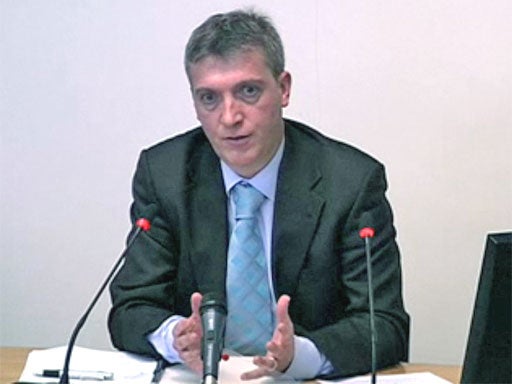Journalists warn press controls undermine scrutiny of police

Journalists' access to police officers has been restricted as part of a backlash at Scotland Yard against allegations its most senior staff were too close to News International's red-top newspapers, crime reporters warned yesterday.
Giving evidence at the Leveson Inquiry, The Independent's crime correspondent Paul Peachey and Jeff Edwards, honourary president of the Crime Reporters Association, warned that tighter controls introduced in the wake of the phone hacking scandal could put at risk the press' ability to hold the police to account.
"The Commissioner of Scotland Yard is talking about a period of austerity [in relations between the police and the press] and that's the scenario in which we're operating," said Mr Peachey, adding that socialising with police was an above-board way of gaining insight and colour which he used in his reports.
Sandra Laville, crime reporter at The Guardian, said restrictions on meeting officers were already hampering her ability to do her job.
The reporters warned of the risk of undermining scrutiny of London's police force as the inquiry heard new evidence about the now-closed News of the World's alleged corruption of serving officers. The Metropolitan Police's Operation Elveden is investigating alleged widespread payments to police officers by journalists on NI's two redtop titles, notably The Sun.
Giving evidence to Lord Leveson's inquiry into press standards, Mr Edwards, formerly veteran crime reporter at The Mirror, said he had been pushed off the beat at the NOTW in the 1980s because he had refused to corrupt serving officers. A news editor had told him to "up your game" and indicated he should use bribery. When Mr Edwards refused, he was removed from his role.
Lord Leveson, who began the second module of his inquiry into the relationship between the press and the police last month, is considering recommending all police be compelled to make a note of their dealings with journalists.
Subscribe to Independent Premium to bookmark this article
Want to bookmark your favourite articles and stories to read or reference later? Start your Independent Premium subscription today.
